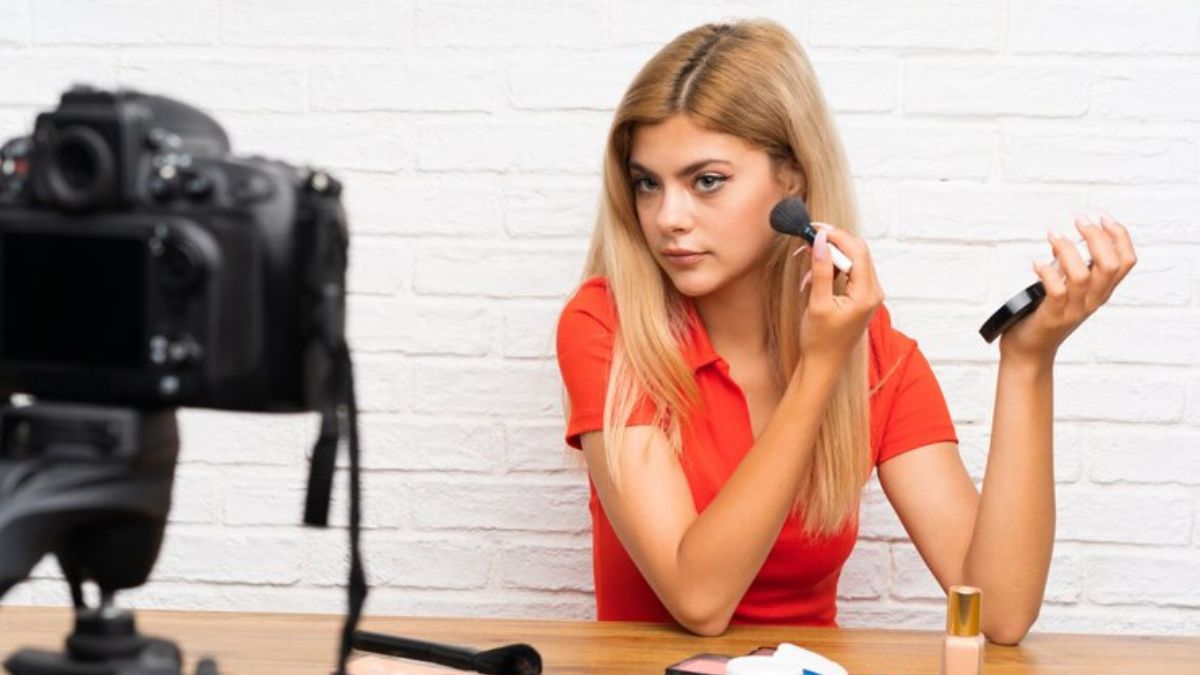Welcome to the captivating world of influencers, where individuals have the power to sway trends, shape opinions, and amass devoted followings with a single post. These digital tastemakers have revolutionized the way we consume content and interact with brands. But as their influence grows, so does the pressure to maintain a flawless facade in an era where one wrong move can lead to a swift downfall. Let’s delve into the rise of influencer culture and explore how some have gone from role models to trainwrecks in the blink of an eye.
The rise of influencer culture and their impact on society
In the age of social media, influencers have risen to prominence, wielding significant influence over their followers. With carefully curated content and aspirational lifestyles, they capture the attention of millions. Their impact on society is undeniable, shaping trends in fashion, beauty, travel, and even societal norms.
Influencers have the power to sway opinions and promote products with just a single post. This level of influence comes with a responsibility to uphold ethical standards and authenticity. However, as the pursuit of perfection intensifies, many influencers face immense pressure to maintain an idealized image at all costs.
While some use their platform for positive change and empowerment, others succumb to scandals that tarnish their reputation. The rise of influencer culture has blurred the lines between reality and fiction in ways that can be both captivating and concerning.
The pressure to maintain a perfect image and the consequences of failure
In the world of influencers, maintaining a perfect image is like walking on a tightrope. The pressure to present an idealized version of oneself can be suffocating. Every post, every caption is scrutinized by thousands, if not millions, of followers. Any slip-up or misstep can lead to backlash and criticism.
The consequences of failure in this digital age are swift and unforgiving. One wrong move captured on camera or one ill-advised tweet can spark a wildfire of negative attention. Influencers who once stood on a pedestal find themselves facing public scrutiny and losing credibility.
The desire for validation and likes often drives influencers to extreme lengths to curate their online persona. But at what cost? Mental health struggles, burnout, and loss of authenticity are common pitfalls in the pursuit of perfection. It’s a constant battle between staying true to oneself and succumbing to the pressures of social media fame.
Examples of influencers who have faced public scandals and backlash
In the world of influencers, scandals can quickly tarnish even the most polished image. Take for example a popular beauty guru who was caught using filters to deceive followers about her skincare routine. The backlash was swift and unforgiving, with fans feeling betrayed by someone they once idolized.
Another influencer faced public outrage after making insensitive comments during a live stream, showcasing a lack of awareness and empathy. This incident led to brands severing partnerships and followers unsubscribing in droves.
Even mega influencers are not immune to controversy; one famous lifestyle blogger came under fire for promoting unrealistic body standards while secretly undergoing cosmetic procedures. The fallout damaged her credibility and left many questioning the authenticity of influencer culture as a whole.
The role of social media in perpetuating this cycle
Social media plays a pivotal role in perpetuating the cycle of influencers gone wild. Platforms like Instagram and TikTok thrive on sensational content, pushing influencers to constantly outdo themselves for attention. The pressure to maintain a flawless image leads many down a slippery slope of risky behaviors and controversial stunts.
The instantaneous nature of social media amplifies any misstep an influencer makes, causing scandals to spread like wildfire within minutes. The constant scrutiny from followers and tabloids further fuels this toxic culture of seeking validation through shock value.
Likes, comments, and shares become addictive metrics that drive influencers to prioritize engagement over authenticity. This chase for virality often sacrifices morals and values in favor of fleeting fame. As young audiences consume this content, they internalize unrealistic standards and harmful ideals promoted by these influencers.
In this digital age, the line between reality and performance blurs as influencers struggle to navigate their public persona versus their true selves. Social media acts as both a stage for success and a battlefield for downfall in the tumultuous world of influencer culture.
The impact on young audiences and mental health
The impact of influencers gone wild extends beyond just the headlines and scandals. It seeps into the minds of young audiences who look up to these digital personalities as role models. The pressure to emulate their seemingly perfect lives can take a toll on mental health, leading to feelings of inadequacy and comparison.
For impressionable young followers, witnessing their favorite influencer’s downfall can be disillusioning. It shatters the illusion of perfection and highlights the consequences of chasing an unattainable standard set by social media stars. This constant exposure to unrealistic standards can breed insecurity and anxiety, especially among those still navigating their sense of self.
As influencers navigate the fine line between authenticity and sensationalism, it’s crucial for them to consider the impact on their younger audience. By promoting transparency, vulnerability, and responsible behavior online, influencers have the power to positively shape how young viewers perceive themselves in a digital world filled with curated images and staged moments.
Steps for influencers to prioritize authenticity and responsibility
In the fast-paced world of influencers, it’s essential to prioritize authenticity and responsibility. To maintain credibility with your audience, start by being transparent about partnerships and sponsored content. Engage with your followers in a genuine way, responding to comments and messages thoughtfully.
Avoid promoting unrealistic standards or harmful products just for profit. Instead, focus on sharing meaningful and valuable content that aligns with your values. Take the time to educate yourself on social issues and use your platform for positive change.
Remember that you have a powerful influence over your audience, especially young viewers who look up to you. Use this influence wisely by promoting positivity, diversity, and inclusivity in all aspects of your content. By staying true to yourself and being accountable for your actions online, you can set a positive example for others in the digital space.
Conclusion: Finding a balance between influence and accountability in the digital age
In a world where influence holds immense power, it is crucial for influencers to remember the weight of their words and actions. While the allure of fame and fortune may be tempting, staying true to oneself and maintaining authenticity should always take precedence. Striking a balance between influence and accountability in the digital age is not an easy task, but it is essential for the long-term sustainability of both influencers and their impact on society.
By prioritizing transparency, responsibility, and genuine connection with their audience, influencers can navigate the complexities of online fame while avoiding the pitfalls that come with it. Remembering that behind every like, share, or comment is a real person with real emotions can help influencers make more mindful choices in how they portray themselves and interact with others online.
Finding this balance requires self-reflection, humility, and a commitment to using one’s platform for good. Influencers have the potential to inspire positive change in society by leading with integrity and empathy. As we continue to witness the rise and fall of influencers gone wild, let us collectively strive for a digital landscape where authenticity reigns supreme over sensationalism.










